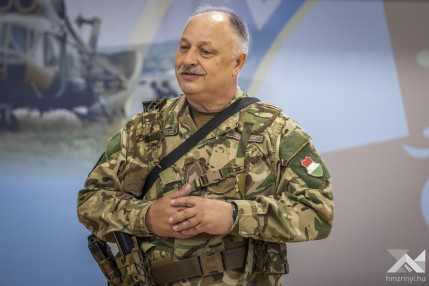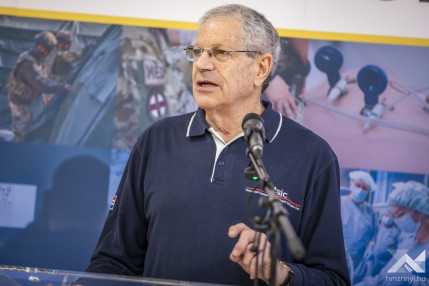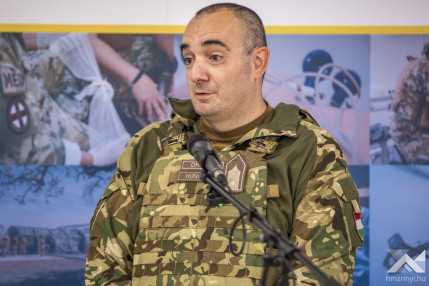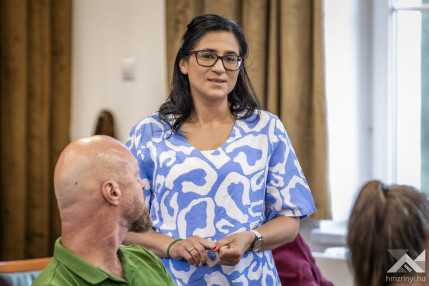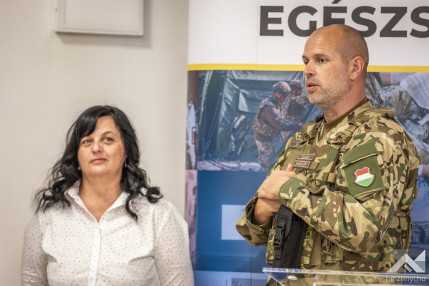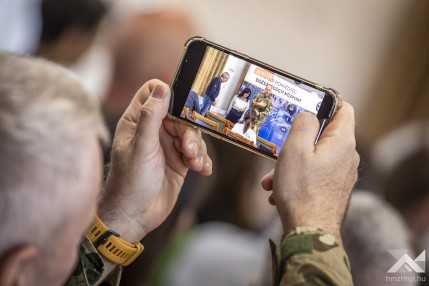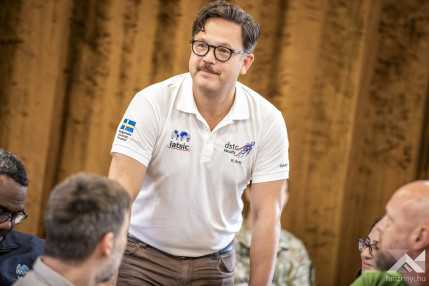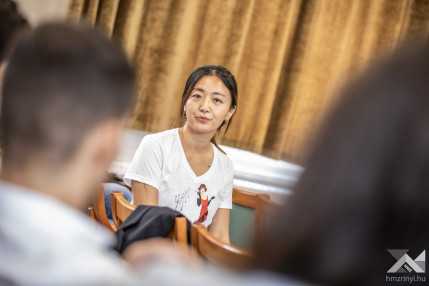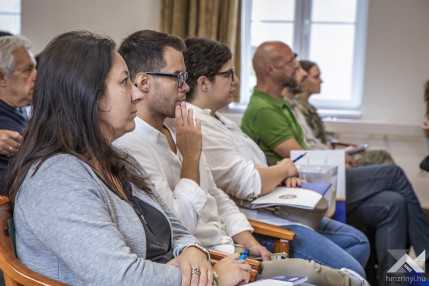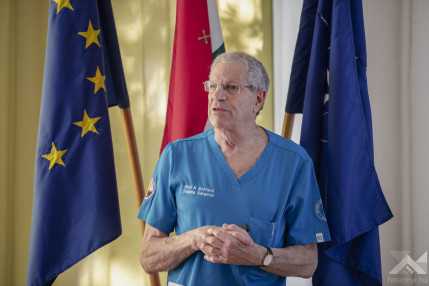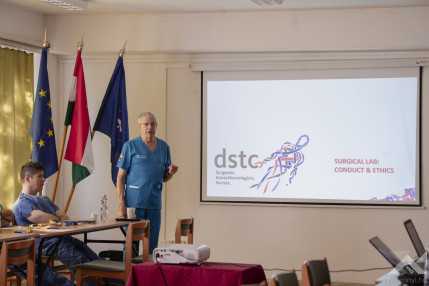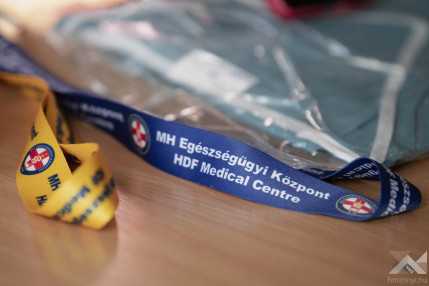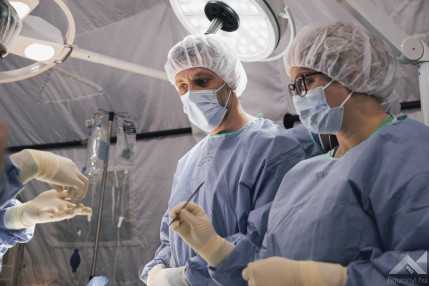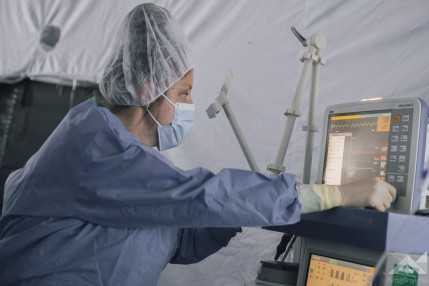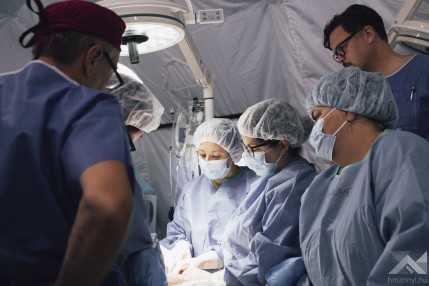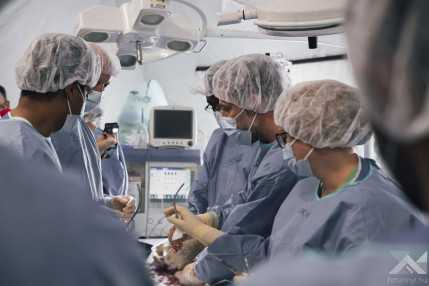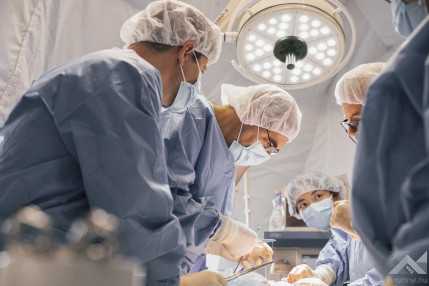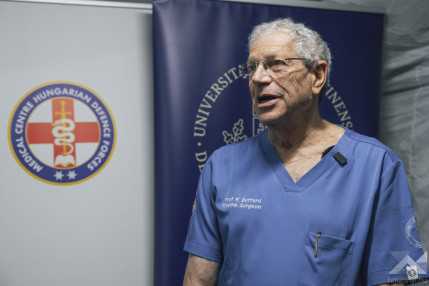Quick and professional medical care even under field conditions
Text: Levente Petróczy | Photo: Franciska Veres, Dávid Fabók | 15:33 October 10, 2025Already on the second occasion in Hungary, the HDF Medical Centre and the Department of Experimental Cardiology and Surgical Techniques, Semmelweis University recently organized a training course for surgeons treating seriously injured patients. The international course was attended by about 30 civilian and military professionals in the field of military medicine from many parts of the world.
In 1999, the International Association for Trauma Surgery and Intensive Care (IATSIC) launched the international course Definitive Surgical Trauma Care/Definitive Anaesthetic Trauma Care (DSTC/DATC) as part of the trauma and emergency surgery training series with a three-decade past history, in order to prepare general surgeons for the quick and professional treatment of special cases. The course objective is to share special techniques, which one can use well even under special circumstances in treating patients who may be in need of surgery and intensive care due to the serious trauma they suffered. The course participants included surgeons, anesthesiologists and operating room assistants. This year again, world-famous instructors with huge expertise from South Africa, Norway and Sweden arrived to teach the course in Hungary.
The Hungarian adaptation of the international DSTC/DATC course is credited to Brigadier General Dr. (MD) Péter Vekszler. Two years ago, as then commander of the HDF Medical Centre, he launched the course – a significant milestone in the life of Hungarian military medicine – in cooperation with Semmelweis University.
At the course opening event, Colonel Dr. (MD) László Fazekas, Director, NATO Centre of Excellence for Military Medicine (NATO MILMED COE) welcomed the instructors and the participants. “I’m certain that all of you will broaden your knowledge and will make use of the practical skills you acquired here in the future” – said the colonel. The director thanked Prof. Dr. Ken Boffard for having undertaken with his 9-member team to instruct the professionals interested in this special training this year as well.
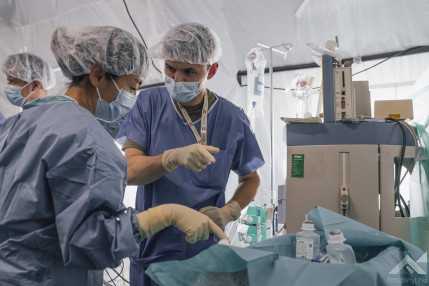
Speaking about the training, Major Dr. (MD) Attila Kiss, Head of Ambulance Department, HDF Medical Centre told defence.hu that the curriculum of the advanced-level course builds on the professionals’ existing knowledge and skills, and for this reason only those trained surgeons and operating room assistants can apply who already completed basic-level trauma care courses.
“As a result of yearslong close professional cooperation, this year – unlike on last year’s DSTC/DATC course – after analyzing the lesson learned, the training was conducted expressly under field circumstances at the Medical Training Base of the HDF Medical Centre. Thus, the course served not only to demonstrate the surgical capability that is part of the Hungarian Defence Forces Role-2 Field Hospital and its practical commissioning, but also helped the participating surgeons and operating room assistants with gaining lifelike experiences” – said Major Dr. (MD) Attila Kiss, adding that the field hospital is not unknown to military doctors and the medical professionals of the Centre – the course, however, offered an excellent opportunity to display part of the capability spectrum of Hungarian military medicine within the frameworks of international, civil and military cooperation.
“I think the most successful factor behind the training is the mindset of the individual. Trauma is not something a normal surgeon likes to deal with, unless they are trained for it” – this was how the course director, trauma surgeon Prof. Dr. Ken Boffard shed light on the approach ensuring the success of the training. The world-renowned South African trauma surgeon and university professor played an outstanding role in the development of modern emergency surgery and trauma education as well as in working out several international policies and educational programs, which determine the practice of casualty care to the present day.
The colonel pointed out that the two-day course for surgeons and anesthesiologists is now in 32 countries, and has been a very successful initiative across the world; since its launch, it has already been used to train surgeons for dealing with seriously injured patients on 500 or so occasions.
Photos by Dávid Fabók
Photos by Franciska Veres
